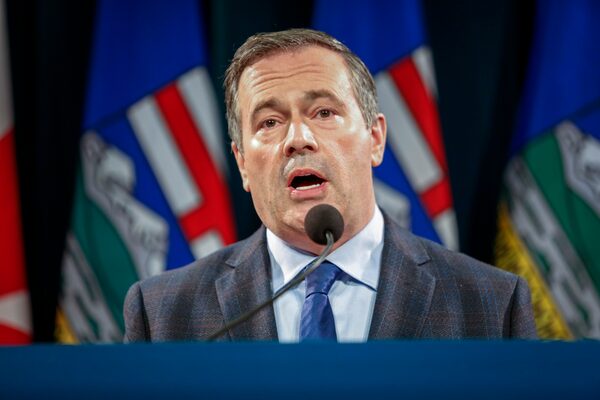
Alberta Premier Jason Kenney.Jeff McIntosh/The Canadian Press
When it comes down to it, Alberta’s referendum on equalization is no more about a single federal spending program than Quebec’s two sovereignty referendums were about separation.
Hundreds of thousands of Quebeckers voted “yes” to sovereignty-association (in 1980) and to sovereignty-partnership (in 1995) without a clear sense in their minds of what either of those terms meant. They nevertheless wanted to send a message to the rest of Canada that their province’s grievances needed to be taken seriously in Ottawa.
In the same way, many Albertans who are preparing to vote “yes” in Monday’s referendum on equalization may not be clear on the details of the 64-year-old federal program that transfers cash to “have-not” provinces. But they believe the current system of fiscal federalism seriously shortchanges their province and want the rest of the country to take notice.
Monday’s referendum question specifically asks Albertans if they believe the equalization principle should be removed from the Canadian Constitution. It is part of Alberta Premier Jason Kenney’s attempt to secure, in the same manner as Quebec, more autonomy for his province.
Clearly, the stakes are nowhere near as high in Monday’s plebiscite, which is being held at the same time as municipal elections in Alberta, as they were when Quebeckers twice held the fate of the entire country in their hands. Mr. Kenney is seeking a “yes” mandate to put pressure on Ottawa to rework the equalization formula, not to break up Canada.
As the country’s most unpopular premier, Mr. Kenney needs a massive vote in favour of change on Monday if he is to have any hope of forcing equalization reform onto the national agenda. That will be a tall order, however, as low turnout and voter apathy threaten to deprive the beleaguered Alberta Premier of the strong mandate he is seeking. If that is the case, the referendum gamble may prove to have been a costly, perhaps fatal, political miscalculation on Mr. Kenney’s part.
In politics, timing is everything and the last thing Albertans want is an equalization referendum
Most Canadians seem to feel their province is treated unfairly, in some way or another, by Ottawa and the rest of the country. But those feelings tend to run highest in Alberta and Quebec, and residents of each province tend to dismiss the grievances of the other.
There is a high degree of subjectivity in any assessment of which province gets the short end of the stick. When it comes to fiscal federalism, however, the numbers do not lie. Alberta has been a net contributor to federal coffers for more than five decades running, while federal spending in Quebec has exceeded the amount Ottawa collects in taxes in the province for about as long.
The federal equalization program is a big reason why that is the case. Established in 1957, and entrenched in the Constitution since 1982, the program aims to ensure that provincial governments have “sufficient revenues to provide reasonably comparable levels of public services at reasonably comparable levels of taxation.” In the current fiscal year, Ottawa will distribute almost $21-billion in equalization payments to five “have-not” provinces, with Quebec receiving about 62 per cent of the total amount, or $13.1-billion.
There is nothing scandalous about transferring wealth from one region to another if it is aimed at sustaining the internal Canadian market and levelling out living standards. But many Albertans believe that Quebec and the Atlantic provinces have relied on equalization payments to avoid developing their own non-renewable resources. They get particularly incensed when Quebec politicians denounce Alberta’s “dirty energy” while their province collects billions of dollars in equalization each year that is disproportionately funded by Albertans’ taxes.
Misperceptions about the federal equalization program abound and many of them have been exploited by proponents of the “yes” side in the current Alberta campaign. But that does not mean that the program, in its current form, does not need to be reworked.
The current equalization formula dates from 2006, although it was tweaked by former prime minister Stephen Harper’s Conservative government in 2009 to prevent the program from becoming even more generous than it was slated to otherwise become. Even so, the equalization pot has continued to grow each year in line with the size of the Canadian economy, even as wealth disparities between Alberta and the rest of the country have shrunk.
Addressing that fundamental design flaw would go a long way to defusing anger in Alberta. Such a change would not suddenly leave any more money in Albertans’ pockets or alleviate the Alberta government’s own fiscal problems, which are mostly of its own making and within its power to address by moving the province’s atypically low tax rates closer to the national average. But it would address a legitimate grievance that, if left to fester, would hurt the whole country.
Keep your Opinions sharp and informed. Get the Opinion newsletter. Sign up today.
 Konrad Yakabuski
Konrad Yakabuski